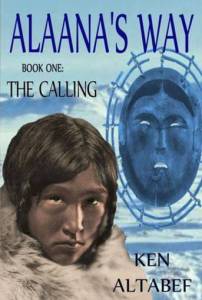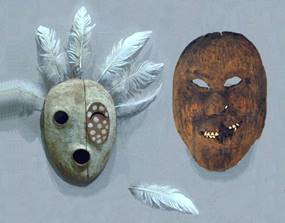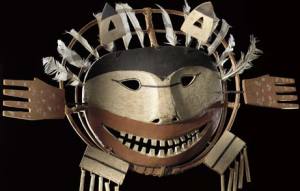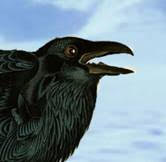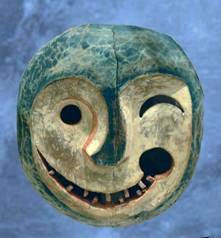 Note from Cat: I copy-edited Alanna’s recent novel, The Traveling Triple-C Incorporeal Circus and was pleased to do so because I think it’s one of the outstanding fantasy books of 2019. It is gentle fantasy, an on-the-road feminist version of Peter Beagle’s A Fine and Private Place. I highly recommend this book, particularly to people who love literary fantasy. If you enjoy her essay, please check the book out!
Note from Cat: I copy-edited Alanna’s recent novel, The Traveling Triple-C Incorporeal Circus and was pleased to do so because I think it’s one of the outstanding fantasy books of 2019. It is gentle fantasy, an on-the-road feminist version of Peter Beagle’s A Fine and Private Place. I highly recommend this book, particularly to people who love literary fantasy. If you enjoy her essay, please check the book out!
I still remember the moment I learned what fanfiction was.
I was in seventh grade and deep deep deep in an obsession with the Harry Potter novels. I was speaking to a ninth grade girl in the same school play as me and she mentioned that she loved Harry Potter as well, and all the extra stories she had found.
Extra stories? Had JK Rowling written something about Harry Potter that I hadn’t gotten my hands on yet? Where could I find these stories? This girl corrected me: no, these were written by other people, but they were about all sorts of things not in the books. People were writing these stories and all I had to do was look for them and I would have no end of Harry Potter, long before the next book came out. This revelation rocked my world. Who else knew about this concept? What was out there for me?
Through middle and high school I set about reading as much fanfic as I could get my hands on. I wrote a great deal of my own, testing out ideas just for the thrill of making a mark on stories I loved, but didn’t have the courage to share it online until I was in college. That became yet another revelation, a world that I could now access as an active participant. It was some of the best concentrated writing practice I have ever gotten, and best of all, there was an eager audience ready to read and support what I had put out there. I know for a fact that a lot of that practice paid off in my professional life.
Sometime around 2013, I got invested in a few audio dramas, particularly the fitness app Zombies! Run, which used audio clips to tell a zombie apocalypse story in the second person, with “you” as one of the survivors who had to run to escape danger. I fell in love with many of the characters and set about writing as much fanfic as I could, but found myself with a unique challenge. The only way I and the rest of the audience had ever interacted with these characters was through their voices. No visuals, no narrative prose to set the scene, no facial expressions to analyze, we only had a few sound effects and the dialogue. So if I wanted the readers of my fic to know when the snarky Canadian radio host was speaking, as opposed to his sappy British partner, I had to make sure their dialogue “sounded” as close to the dialogue of the show as possible.
 Once I started focusing in on dialogue, this became a personal challenge for me, beyond what fanfiction already was. Could I write a fic with only dialogue and make it clear who was speaking when? How about a scene with more than two people? If I read this dialogue out loud, could I imagine the character’s voice actor saying it, or would it sound strange in their mouths? What sorts of words and verbal tics did these characters use that I could employ to indicate when they were speaking? The harder I worked at getting these voices down, the more positive responses I got from my new friends in the fandom and the harder I tried. (And in a fortuitous story of the modern age, I became friends with another fanfic writer for Zombies! Run who, six years later, is now my fiancee.)
Once I started focusing in on dialogue, this became a personal challenge for me, beyond what fanfiction already was. Could I write a fic with only dialogue and make it clear who was speaking when? How about a scene with more than two people? If I read this dialogue out loud, could I imagine the character’s voice actor saying it, or would it sound strange in their mouths? What sorts of words and verbal tics did these characters use that I could employ to indicate when they were speaking? The harder I worked at getting these voices down, the more positive responses I got from my new friends in the fandom and the harder I tried. (And in a fortuitous story of the modern age, I became friends with another fanfic writer for Zombies! Run who, six years later, is now my fiancee.)
When it came to writing my debut novel, The Traveling Triple-C Incorporeal Circus, I took those lessons and utilized them as well as I could. A large portion of my novel concerns the three main characters (two ghosts and a mime) embarking on a road trip and talking with one another along the way. Giving Chelsea, Carmen and Cyndricka distinct voices became a vital part of my writing process, and thankfully my work has been worthwhile, with reviews pointing out the distinct voices as a strong point of my book. Spending so much time working with voices that other writers had laid out for me helped me to find unique voices of my own, and I could not be happier about that.
Which is not to say that everything that works in fanfic works in a novel.
One of my biggest struggles was getting back into the habit of writing exposition. In fanfic, you can always assume that the reader knows the world, setting and background of the story you’re working within. More than once when writing Triple-C, I had to remind myself that all of the rules of the ghostly world were not already common knowledge, that I had to set the stage and articulate whatever the reader needed to know in order to enjoy the story. Sure, if I was writing an alternate universe story in fanfic, I would need to sketch out the world more, but in my writing in the “canon-verse”, I had gotten lazy about exposition. At least a few of my early editors were confused why the ghosts could not get into a car for the road trip and save everyone some time. (The answer to that, incidentally, is that the physical car would move through the ghosts’ incorporeal bodies, leaving them behind.)
Without the thriving fanfiction community that I was part of, I think my novel would look (and sound) very different from how it does today. And I know for certain that my life would look different without the people I met through my fandom days. I have not been very active in writing fanfiction for a while, but every now and then I dip my toes back in to stretch out some old writing muscles and remind myself what I love about it. Writing fanfiction is not a lower or lesser way of writing than original work; they can feed into each other and overlap, each with its own strengths and weaknesses.
And beyond all of that, no matter if you ever make a cent off of it or not, writing fanfic is fun. Because really, what’s better than writing an angsty canon divergence fic or a fluffy Tattoo Artist/Florist AU? Nothing.
 About the author: Alanna McFall is a novelist, short-story writer, and playwright. Originally from Minnesota, she lived in a number of places on either coast before landing in the Bay Area, where she is a resident playwright with PlayGround San Francisco. Alanna is the 2019 winner of the June Anne Baker Prize for female playwrights representing a gifted new comedic or political voice. When not writing, she is a theater administrator, avid cross-stitcher, and podcast nerd. Follow her work and upcoming projects at alannamcfall.com or find her on Twitter as @alannamcfall. The Traveling Triple-C Incorporeal Circus is her first novel.
About the author: Alanna McFall is a novelist, short-story writer, and playwright. Originally from Minnesota, she lived in a number of places on either coast before landing in the Bay Area, where she is a resident playwright with PlayGround San Francisco. Alanna is the 2019 winner of the June Anne Baker Prize for female playwrights representing a gifted new comedic or political voice. When not writing, she is a theater administrator, avid cross-stitcher, and podcast nerd. Follow her work and upcoming projects at alannamcfall.com or find her on Twitter as @alannamcfall. The Traveling Triple-C Incorporeal Circus is her first novel.




